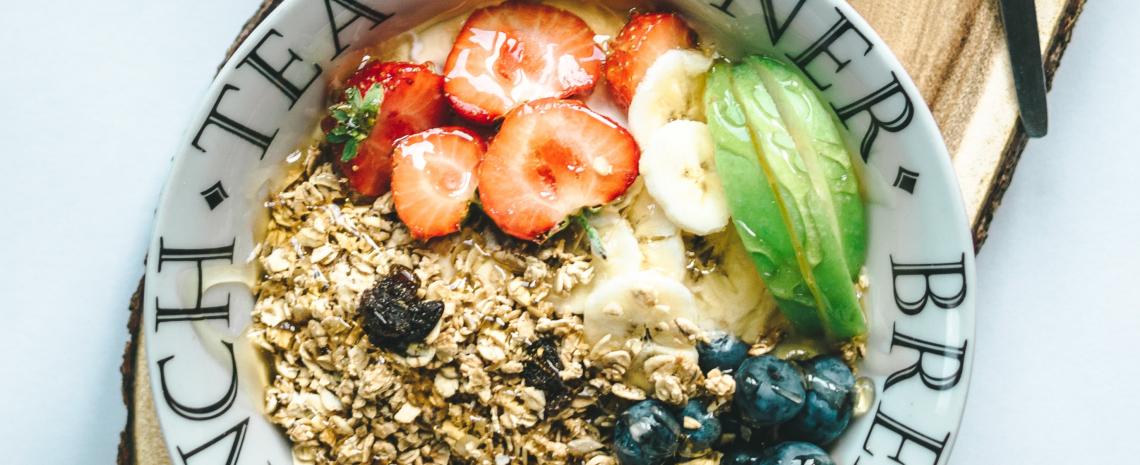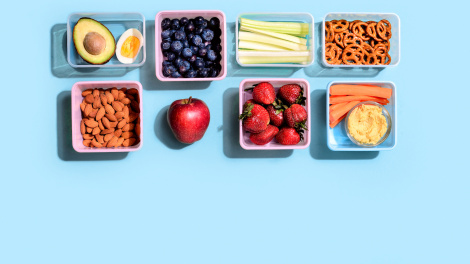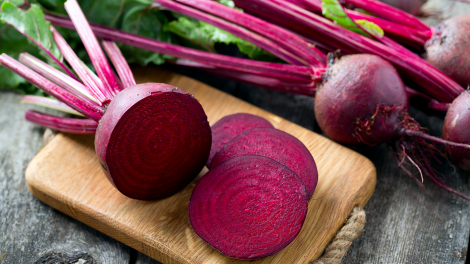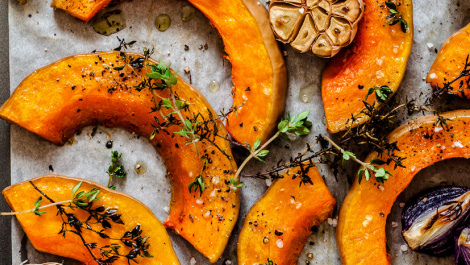“Healthwashing” is a term used to make something seem healthier than it is. You won’t be surprised to know that a lot of marketing dollars are used to have us believe that some not-so-healthy foods are better for us than they actually are.
Here are the top five culprits (and tips on how to identify them).
#1 - Granola
When we think of granola we may think about wholesome oats, nuts, seeds, dried fruit, and honey. All of these can be healthy for you, but when they’re combined into a cereal that generally has a lot of sugars added to it, it becomes somewhat of a “dessert” rather than a healthy breakfast.
Tip: Check the ingredient and nutrition labels to see how much sugar has been added. As an ingredient, sugars usually end in -ose (e.g. glucose, sucrose, etc.). In the Nutrition Facts table, our “free” or “added” sugars shouldn’t exceed 50g in the whole day. If your serving of granola has 12g of sugar per serving, then that is about ¼ of your sugar intake for the entire day – and you’re likely to be eating your granola with fruit, so watch out.
#2 - Yogurt
Hand-in-hand with granola is the humble fermented yogurt. Okay, obviously natural yogurt is not bad, but just be careful. It’s often advertised to be teeming with gut-healthy probiotic bacteria, but there are two common problems with many commercially-available yogurts.
First, it may not have any live probiotics left in it. Sometimes manufacturers make the yogurt with bacteria and then pasteurise it which kills off the bacteria.
Tip: Check the label to see if it has “active live cultures” in it.
The second common problem with yogurt is the added sugars. Real, healthy yogurt is sour from the natural fermentation and lactic acid produced by the gut-friendly bacteria. Many products add a lot of sugars to overcome this flavour and make it sweet. Avoid flavoured yogurts as much as possible – they’re generally packed with sugar and artificial flavours.
As with some over-sweetened granolas, over-sweetened yogurts are closer to a dessert than a healthy breakfast or snack. See the tip under the “granola” section above for how to spot added sugars.
#3 - Smoothies
Don’t get us wrong - some smoothies are a fantastic way to drink fruits, vegetables, and nuts. The problem comes from some pre-made smoothies that use juices and sugars instead of harnessing the natural sweetness of real, whole fruit.
Tip: If you want to enjoy smoothies, choose ones made with fresh or frozen whole fruit instead of juice, and unsweetened yogurt instead of the sweetened kind. In fact, if you can, rather make them yourself.
#4 - Dried fruit
Dried fruit includes raisins, cranberries and dried dates, apricots, and figs. This also goes for recipes that include large quantities of them like date squares. They’re delicious, but moderation is key.
Fruits are nutritious foods when eaten fresh and whole, but after being dehydrated they become a concentrated source of sugar. For example, dates can be two-thirds sugar by weight! Plus, some of the ones at the store are made even sweeter with added sugars as well.
Tip: Eat these sparingly and make sure the kind you choose don’t have added sugars. Look for sun dried and sulphur free options.
#5 - Trail mix
Many store-bought trail mixes include questionable ingredients. While they may advertise their nuts and seeds, beware of ones that are sugar-coated and salt-covered. Also, some trail mixes contain colourful candy-coated chocolate and granola (see #1 above).
Plus, these kinds of foods are easy to overeat if you eat straight out of the bag.
Tip: Portion control so you only have only about one-quarter cup as your serving size or make your own healthy trail mix using the mix below from our 21 Day Kickstarter.
Trail Mix Recipe
4 Servings
Ingredients:
|
⅓ cup (80 mL) |
Pecans |
|
⅓ cup (80 mL) |
Almonds, whole |
|
⅓ cup (80 mL) |
Pumpkin seeds |
|
2 tbsp (30 mL) |
Cranberries, dried Optional |
|
2 tbsp (30 mL) |
Apple, dried Optional |
|
½ tsp (3 mL) |
Cinnamon |
|
¼ cup (60 mL) |
Carob or very dark chocolate chips |
Instructions:
Combine all ingredients in a bowl. Store in a mason jar or another glass container with a tight-fitting lid.
Happy munching!







Comments